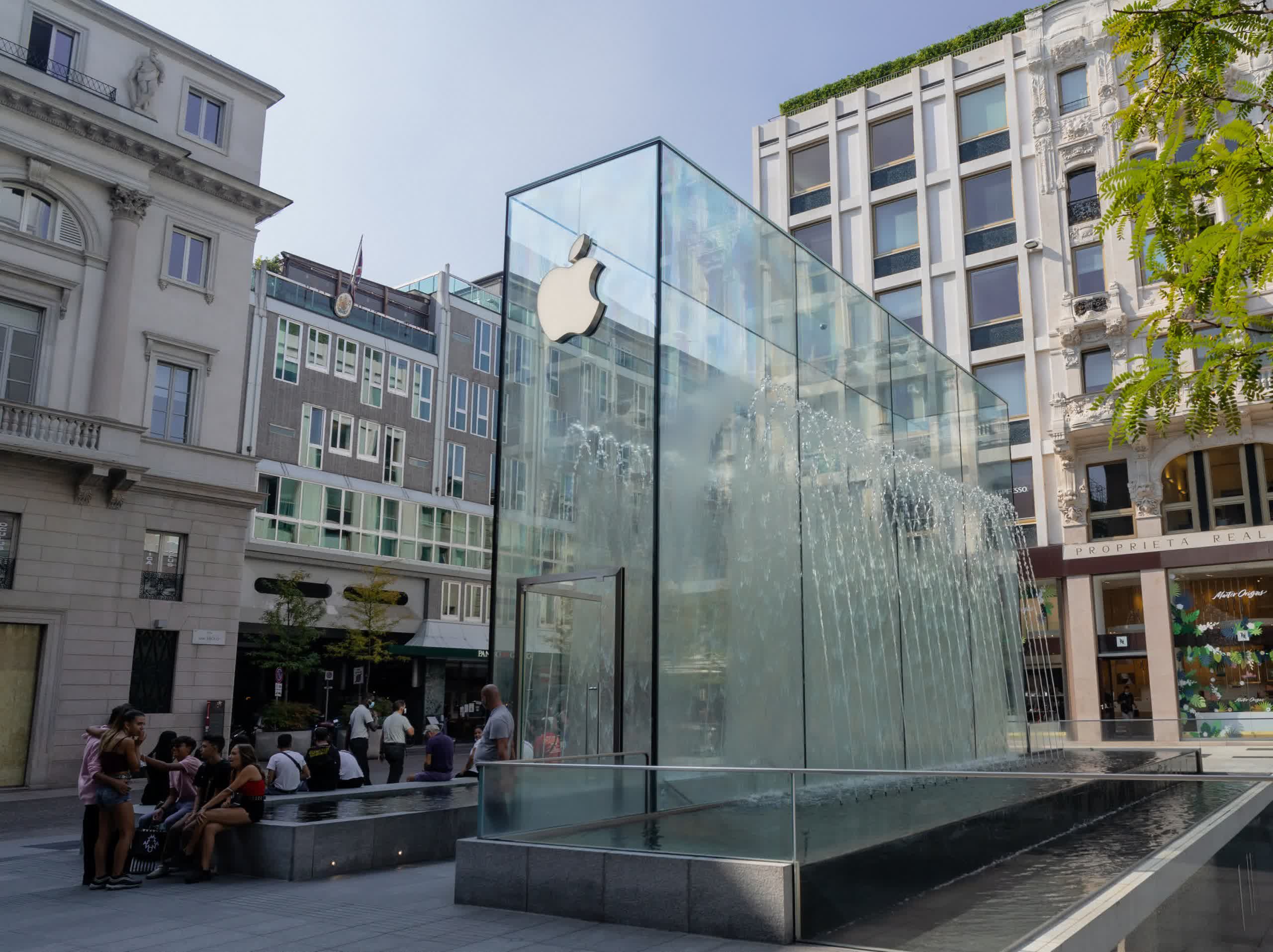In a nutshell: Epic's antitrust lawsuit against Apple concluded last month with both companies taking something of a victory lap after the ruling. Apple successfully defended against most complaints, and Epic won the right to use external in-app payment methods. However, both companies have filed appeals.
On Friday, Apple filed an appeal challenging Judge Yvonne Gonzalez Rogers's ruling that it violated anti-steering laws by not allowing developers to link to external payment platforms. Rogers said that Apple must change its guidelines and let software makers link to external payment platforms. Apple has 90 days to comply with this portion of the judgment, making the due date early December.
However, Apple has asked for a stay on the ruling while it appeals to a higher court. Apple argues that the anti-steering rule is unnecessary because it has already changed its App Store guidelines to allow developers to inform customers of external payment systems. Although allowing developers to tell users of an alternative is not the same as letting them link to it within the app, as the ruling demands. It is worth noting that Apple has started allowing a classification of software it refers to as "reader apps" to link to their subscription and payment platforms, but this excludes game apps.
Apple insists that implementing direct linking to external payment platforms is risky for its customers. At the very least, it needs time to evaluate the risks and test the system.
Apple filed a peel https://t.co/hvnfgg8lZC pic.twitter.com/TouBIrKiSp
--- Tim Sweeney (@TimSweeneyEpic) October 9, 2021
"Links and buttons to alternate payment mechanisms are fraught with risk," read the appeal filing. "Users who click on a payment link embedded in an app---particularly one distributed through the curated App Store---will expect to be led to a webpage where they can securely provide their payment information, email address, or other personal information."
Apple lawyers say that just suddenly allowing developers to link to their own payment platforms will open users up to fraud. Even with staff dedicated to checking the validity of thousands of disparate external stores, there would be nothing stopping a shady developer from making malicious changes to its platform.
"While Apple could examine the links in the version of the app submitted for review, there is nothing stopping a developer from changing the landing point for that link or altering the content of the destination webpage," the legal team argues. "Additionally, Apple currently has no ability to determine whether a user who clicks on an external link actually received the products or features she paid for."
If Apple's stay and appeal are granted, it could tie up the court's order for years while the legal process plays out.
Late last night, Apple informed Epic that Fortnite will be blacklisted from the Apple ecosystem until the exhaustion of all court appeals, which could be as long as a 5-year process. pic.twitter.com/QCD7wogJef
--- Tim Sweeney (@TimSweeneyEpic) September 22, 2021
While Epic was happy with the small victory, losing the rest of its complaints was not something it was ready to accept and has also filed an appeal. Part of the judgment says Epic has to pay Apple more than $3 million for flagrantly skirting the App Store by offering an external payment alternative. Forking over Apple's share of off-platform sales is a small price to pay for getting legal approval for having external stores that don't answer to Cupertino.
Perhaps a more significant factor in Epic's choice to appeal was that Judge Rogers ruled it failed to prove that Apple exercised monopoly power. Rogers noted that while Apple was not currently monopolistic, it could become so in the not-so-distant future. In fact, the judge implied that her decision regarding monopoly power may have been different if Epic had focused more on it.
"The evidence does suggest that Apple is near the precipice of substantial market power, or monopoly power, with its considerable market share," wrote Judge Rogers. "Apple is only saved by the fact that its share is not higher, that competitors from related submarkets are making inroads into the mobile gaming submarket, and, perhaps, because plaintiff did not focus on this topic."
In the meantime, Apple has vowed that it will not allow Fortnite back on the App Store until the current lawsuit and all appeals are settled and closed.
